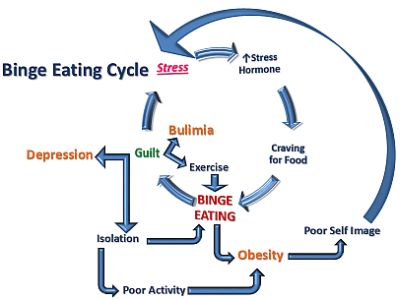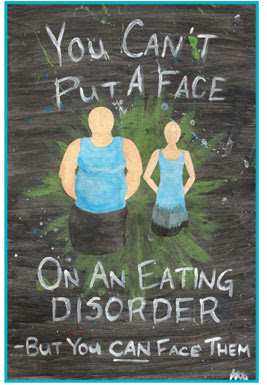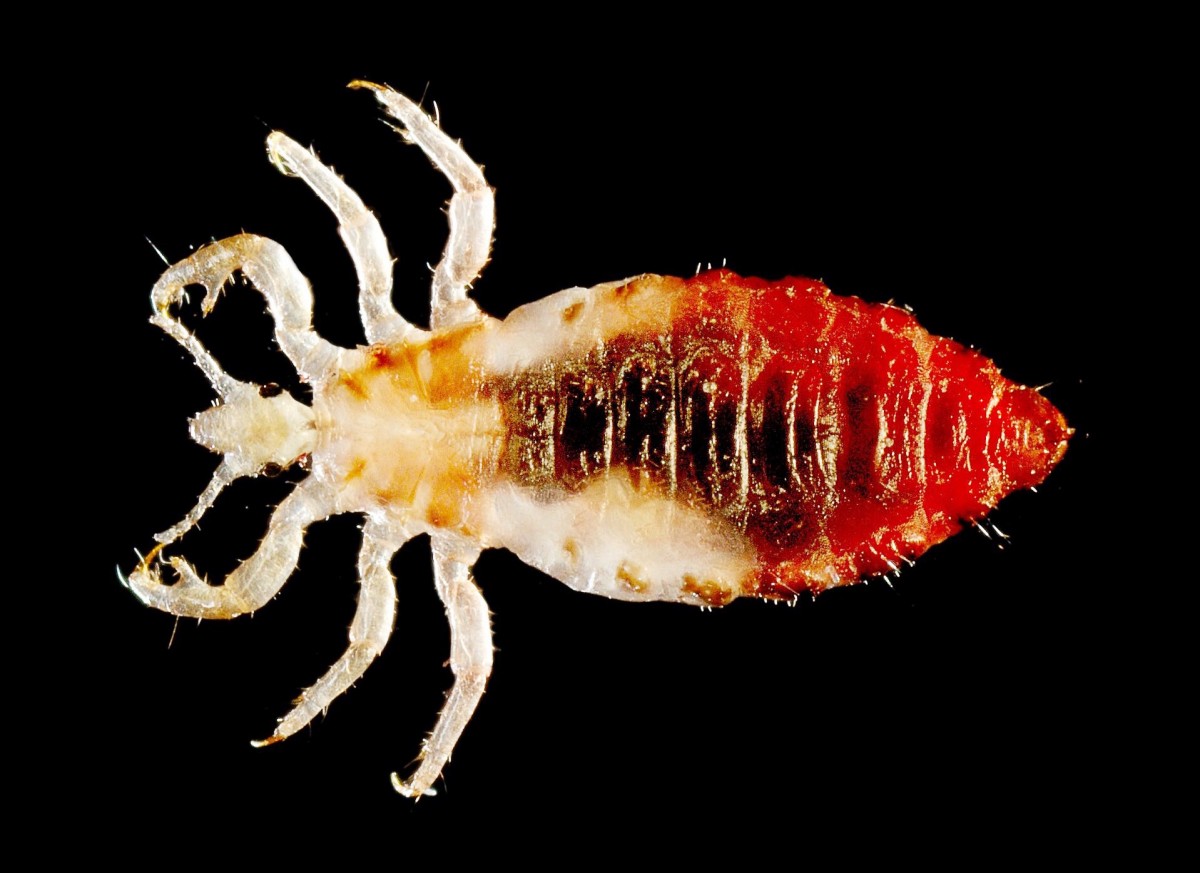What is Binge Eating Disorder
Just one more piece.

The Leading Eating Disease
I'd feel safe in saying that we've all had a time or two when we have had way too much to eat. If you have, it doesn't mean you're a binge eater. In it's simplest form, Binge Eating Disorder is described as compulsive overeating in which people consume huge amounts of food while feeling out of control and powerless to stop.(HelpGuide.org) It is when someone eats long after they’re full and a typical session of chowing down lasts two hours. I'm not talking about having another piece of cake at the kitchen table to continue a chat with your friends either.
It is a serious eating disorder that involves hurriedly eating large amounts of food, even when you're not hungry. It can often be when you eat throughout the entire day. Worse than even these couple of traits is that a person with this disorder will hide food to eat later in secret, by themselves. Mainly, you feel that you just cannot stop eating even if you are totally full.

It's complicated...
An important distinction in understanding this eating disorder, is that food is used to cope with stress and other negative emotions a person has. People affected by this disorder usually feel out of control in some way. Not surprising is just the opposite result is achieved...you will and do feel worse about things when the binge session finally ends. WebMd says in the United States alone, about 3.5% of women (5.6 million) and 2% of men (3.1 million) have it.{September 11, 2014}.
There really is no one clear reason or cause of Binge Eating Disorder. As you might expect, this illness leads to a wide variety of physical, emotional, and even social problems. Someone with this can actually remain at a normal weight, but most times a person will be obese and their weight gain is followed by their being ashamed of their appearance. Still, it is not a simple "will power" cure.
There can actually be a biological cause in where the part of the brain that controls your appetite may not be sending the correct messages about your hunger. Scientific studies have shown that low levels of the brain chemical serotonin play a role in compulsive eating. Then, people with true, clinical depression are prone to this illness. Even ordinary behavioral struggles with loneliness, low self-esteem and feelings of low self worth can become factors.
What Can You Do?
There are several things a person can try to do to treat this disorder, including keeping a food diary, exercising, developing some hobbies or removing the tempting tid-bits from your cupboards. But remember, this is more than having an eating problem. It can be biological and/or psychological in nature. So it is important to get treatment help from a medical professional. They can help you dig into the root of the problem; your fears, stresses, triggers and especially depression. Strong emotional factors are usually part of the disorder.
There are some medications that can be prescribed if deemed necessary and helpful. There are three acknowledged forms of behavioral therapies that are widely utilized. Recent medical research even says that bariatric surgery is an alternative solution as people with binge eating disorder typically had poor results with weight loss attempts and can even increase their behaviors that will diminish their chances for getting healthy.
Facing Facts

How would you rate the seriousness of this disorder?
Epilogue
Binge Eating Disorder is the most common eating disorder in adults. 1 You may need to limit certain types of foods or lose weight. You will need your doctor's advice on how to lose extra weight because dieting does trigger binge eating. Be patient and do not blame yourself.
There is a national toll free number supplied by the National Eating Disorders Association (NEDA) if you believe you have Binge Eating Disorder (BED). It is a help line and you can talk to someone about possible actions to take.
The phone number is 1-800-931-2237. I hope you will call them. I plan on doing so myself. Maybe I'll talk with you in a future national support group. Plus, here is a link that can show you some eating disorder blog sites........http://bit.ly/1M4aiGp
(1) Iacovino JM, Gredysa DM, Altman M, Wilfley DE. (August 2012).








